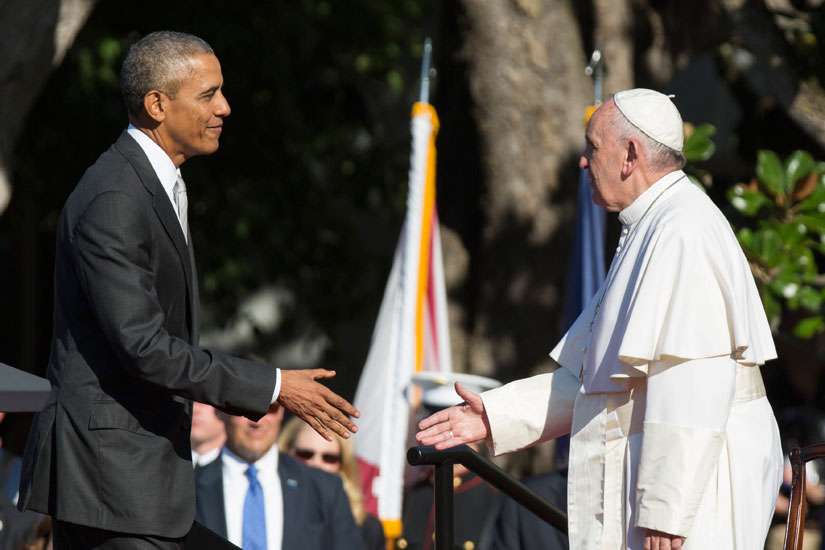Diplomatic normalization isnt enough for Francis. He wants something more than embassies open, visas issued and sanctions dropped. Remember that the more is a core value for Jesuits. St. Ignatius pushed his company to always ask themselves, what more can I do for Christ? The Latin word Jesuits use for more is magis. The magis Pope Francis imagines for Cuba and the United States is for them to share that essential and primary accomplishment of every Mass said in every chapel, parish and cathedral in the world. He wants reconciliation.
We too often forget the primary sacrament of Reconciliation is not confession. Our primary sacrament of Reconciliation in Christ’s Church is the holy sacrifice of the Mass. But Pope Francis does not forget. Reconciliation is precisely the magis he is reaching for on this trip.
At Mass in Santiago, Cuba, Pope Francis began speaking about building bridges, to break down walls, to sow seeds of reconciliation. That wasn’t a message just for Cubans. It takes two to tango and our Argentinian Pope knows tango.
As Pope Francis began to speak about Mary and her essential role in reconciliation as the one who connects people to each other and puts others first, he framed this concept of reconciliation in language Americans and Cubans know well. He spoke about revolution. Cuba in 1958 and the United States in 1776 were refounded and reimagined by their revolutions. In a sense, each nation’s people rediscovered themselves in a process of revolution.
”Our revolution comes about through tenderness," Francis told Cubans, knowing full well that Americans would overhear. "Through the joy which always becomes closeness and compassion, and leads us to get involved in and to serve the life of others."
Pope Francis always turns back to Mary when he wants us to understand the Church. His view of Mary is not sentimental, frozen or idealized. His Mary is not a plaster saint. Whenever we look to Mary, we come to believe once again in the revolutionary nature of love and tenderness, he said.
So this Mary is a revolutionary, every bit as tough and heroic as Fidel Castro and George Washington. She is unyielding in service to others. And Mary’s revolutionary heroism is a call to the Church.
Generation after generation, day after day, we are asked to renew our faith. We are asked to live the revolution of tenderness as Mary, our Mother of Charity, did. We are invited to leave home and to open our eyes and hearts to others, Francis preached. Like Mary, Mother of Charity, we want to be a Church which goes forth to build bridges, to break down walls, to sow seeds of reconciliation. Like Mary, we want to be a Church which can accompany all those pregnant situations of our people, committed to life, to culture, to society — not washing our hands but rather walking with our brothers and sisters.
His message to Congress this morning will not contradict what he told Cuba’s ordinary Catholics. This is the one man who can call America back to its revolutionary ardour in the service of us all.

23/09/15 - Pope seeking to reconcile and build bridges
24/09/15 - St. Junipero Serra brought Jesus to the worthy Native Americans
25/09/15 - New York goes crazy in a papal sort of way


